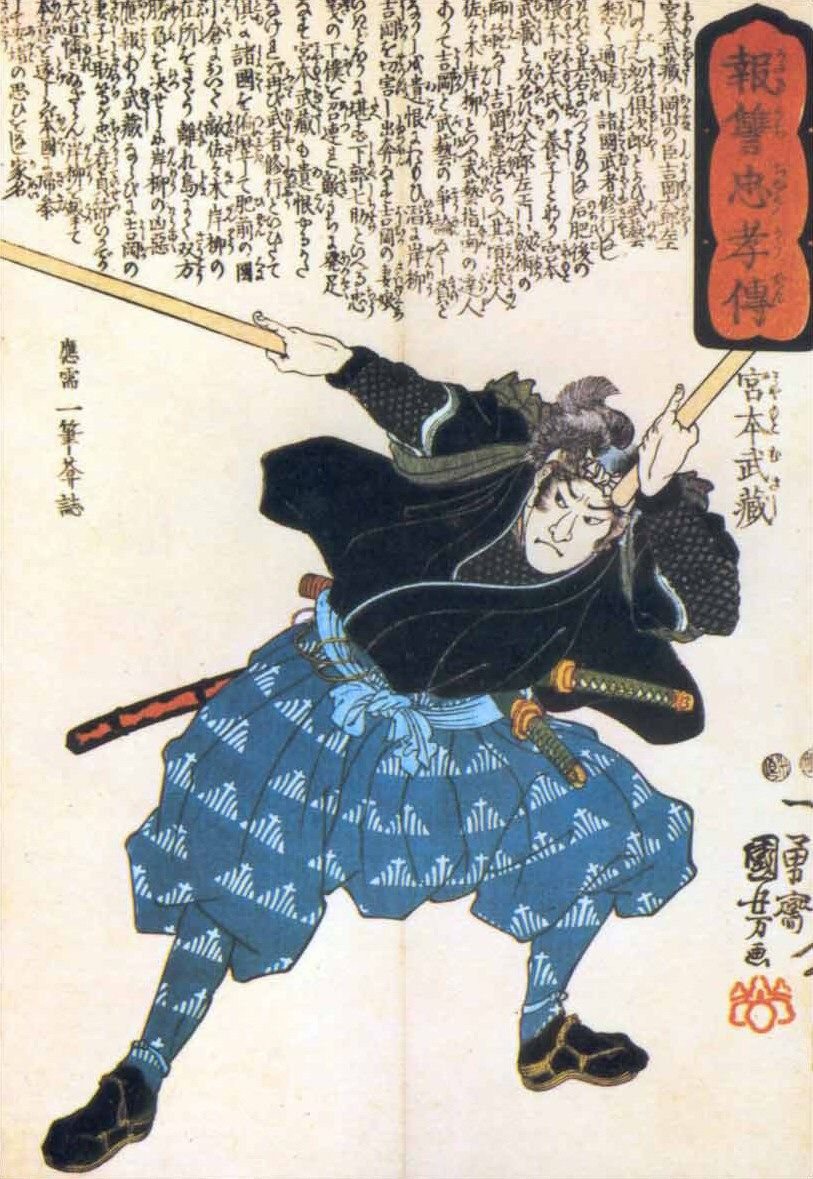VOICE and The Book of Five Rings - Velocity

This is the first post in a series on the VOICE principles and the philosophy of Miyamoto Musashi as written in The Book of Five Rings. The translation of The Book of Five Rings used here was sourced from WikiQuote.
I wrote this series while working at YP.com. I’ve updated some of the language to reflect the past tense and generally make it read easier.
YP.com and its employees practiced the VOICE principles (Velocity, Ownership, Innovation, Collaboration, and Execution), and we rated every employee’s embodiment of those principles in our annual reviews. By following these principles, you will be a more effective leader, employee, and entrepreneur.
The Book of Five Rings, written by Miyamoto Musashi, describes a philosophy called “The Way” of sword fighting which can be applied across any discipline. Miyamoto Musashi was a renowned Japanese samurai who lived in the 16th century and his writings are still studied today.
This series explains how the sword fighting principles of The Way can be generalized to each VOICE principle, leading you to becoming more productive.
Velocity
Velocity is about consistently moving forward, regardless of obstacles, but always with a purpose and intentional direction. It keeps us nimble as individuals and as groups of varying sizes, and allows us to ebb and flow as necessary to not just survive, but to win.
It is difficult for large numbers of men to change position, so their movements can be easily predicted. An individual can easily change his mind, so his movements are difficult to predict. You must appreciate this. The essence of this book is that you must train day and night in order to make quick decisions.
As individuals, teams, and as a company as a whole, we must practice decisiveness in every judgment. We choose quickly, and commit completely.
In strategy your spiritual bearing must not be any different from normal. Both in fighting and in everyday life you should be determined though calm. Meet the situation without tenseness yet not recklessly, your spirit settled yet unbiased. Even when your spirit is calm do not let your body relax, and when your body is relaxed do not let your spirit slacken.
Perseverance of awareness at all times is necessary. As part of Velocity and moving forward, we need to be constantly aware of where we are, where our competitors are, and where our customers are. This awareness allows us to rethink whether we’re moving in the correct direction and making the right decisions and whether any changes are necessary to maintain our velocity.
Be neither insufficiently spirited nor over spirited. An elevated spirit is weak and a low spirit is weak. Do not let the enemy see your spirit.
Our outward appearance, as a company, as a team, as individuals, should remain vigilant and consistent at all times. We should never appear as though we’re reactionary, too slow, too fast, neither excited nor tranquil; we always move at an appropriate pace.
In all forms of strategy, it is necessary to maintain the combat stance in everyday life and to make your everyday stance your combat stance. You must research this well.
Our Velocity is demonstrated in all activities. In the code of our products, in our customer service and our community service, and in our team and cultural commitments, our velocity never falters and is always steady.
"There are many enemies" applies when you are fighting one against many. Draw both sword and companion sword and assume a wide-stretched left and right attitude. The spirit is to chase the enemies around from side to side, even though they come from all four directions. Observe their attacking order, and go to meet first those who attack first. Sweep your eyes around broadly, carefully examining the attacking order, and cut left and right alternately with your swords. Waiting is bad. Always quickly re-assume your attitudes to both sides, cut the enemies down as they advance, crushing them in the direction from which they attack.
YP.com is fighting many competitors, each posing their own unique challenge. We don’t fight, or stay ahead, of each one, but instead fight them all simultaneously. We must maintain our velocity, sweeping across those who “attack” first with their own products and innovations. We don’t wait for others to innovate and copy their ideas, we act first, with deliberate movement and velocity, seizing every opportunity to revolutionize a product, create a new one, sell that product, and pleasing that customer in both the performance of the product as well as our customer service.
Some men use a shorter long sword with the intention of jumping in and stabbing the enemy at the unguarded moment when he flourishes his sword. This inclination is bad.
We don’t wield a single product, waiting to find a customer for whom the product will fit. Nor does velocity mean we wait for the “right time” to propose a new technology, enter a market, release a product, or make a sale. We practice velocity by continually improving, never waiting for an opportunity, and creating opportunities with our forward movement.
Really skillful people never get out of time, and are always deliberate, and never appear busy. From this example, the principle can be seen.
Here Musashi summarizes velocity perfectly. As a company, and as individuals, with velocity, our actions are performed with purpose, thought, and confidence. There is no ebb and flow, only consistency of performance, decisively and wisely managing time and resources.
Conclusion
Now that you’ve read how to achieve velocity using The Way, you need to start acting on these principles. Begin by applying what it means to have velocity (decisiveness, awareness, persistency, confidence, and consistency) to your daily work. Tell yourself at the beginning of each day that you will embody velocity in all that you do, and be a model to others in your actions.
Next in the series, we’ll read what Miyamoto Musashi says about ownership.




